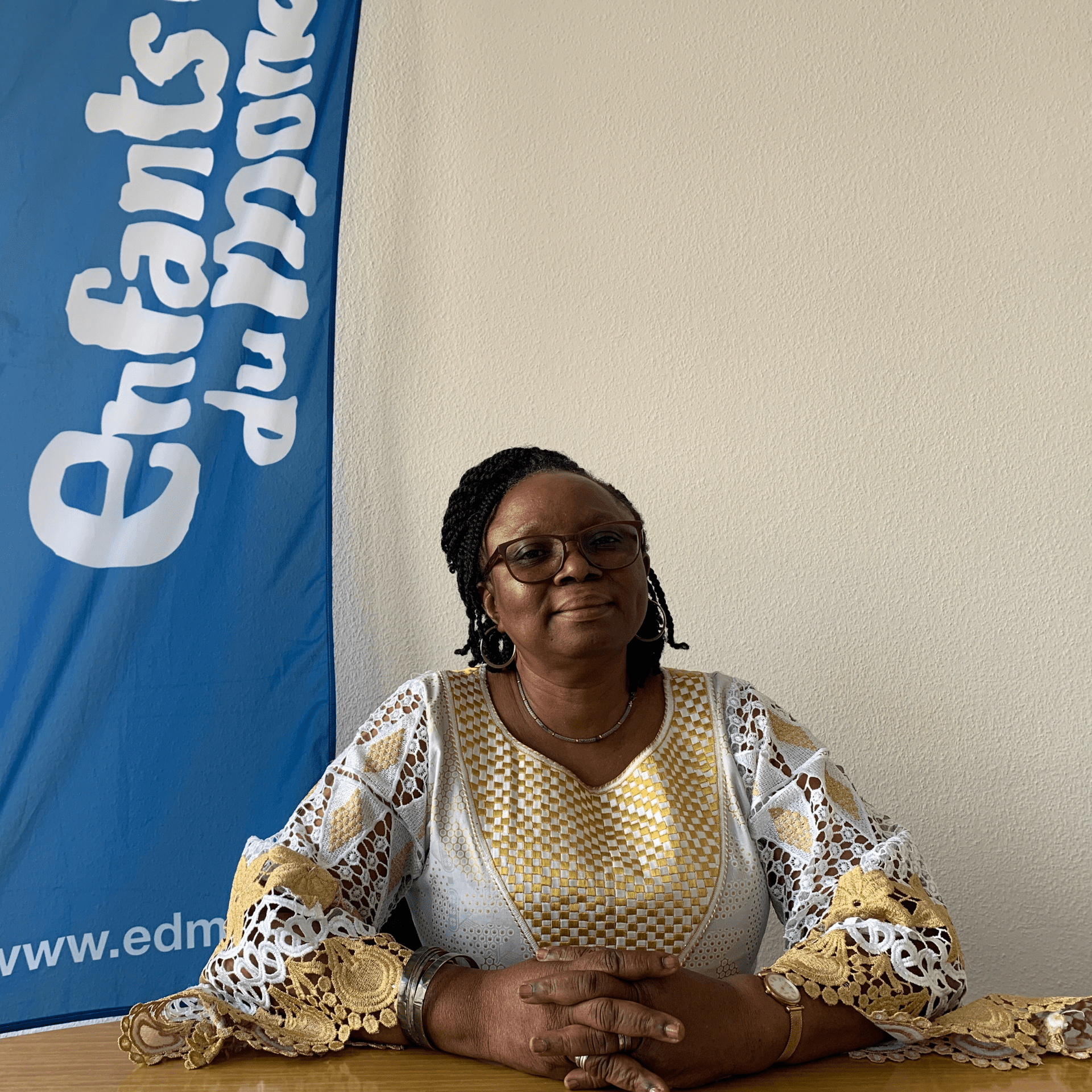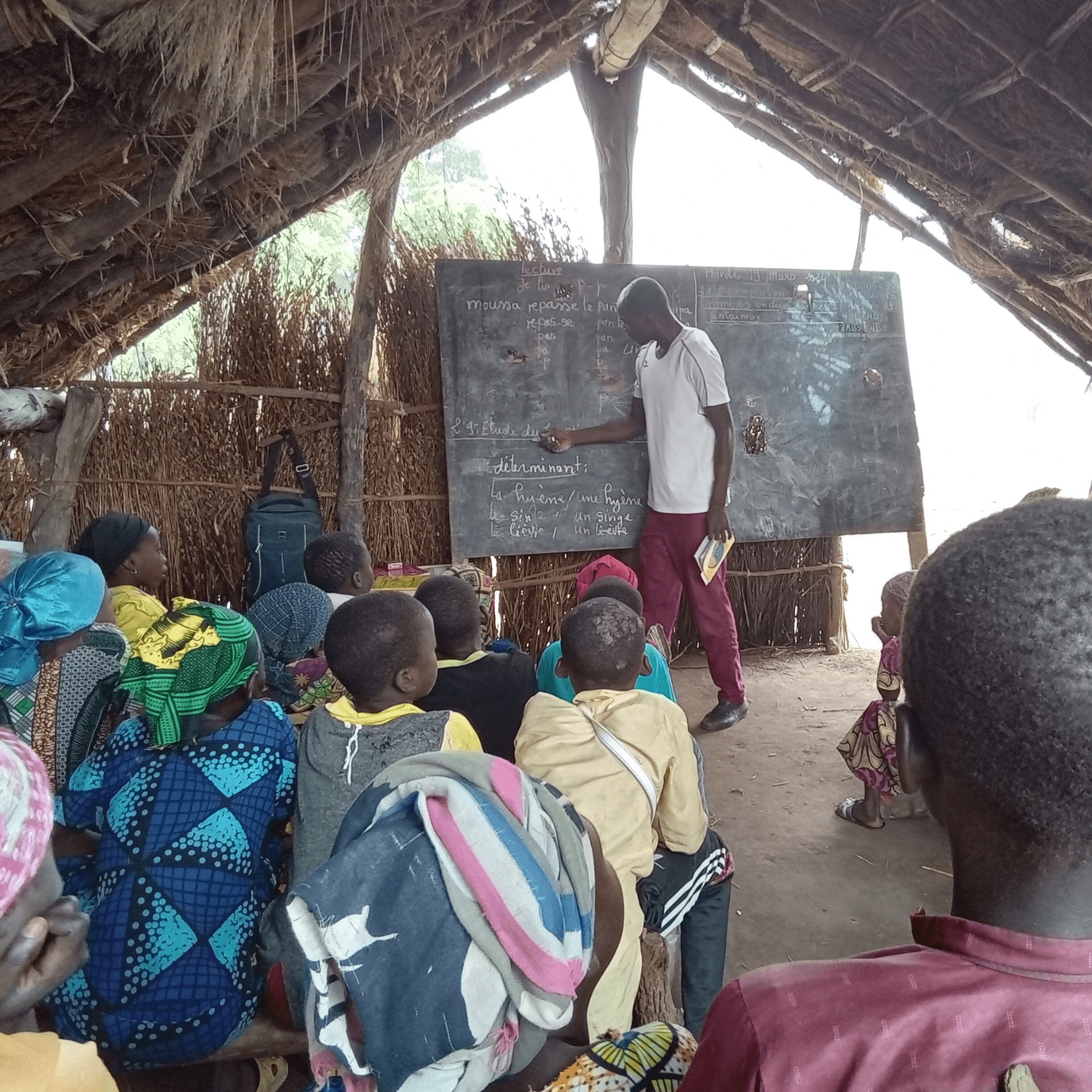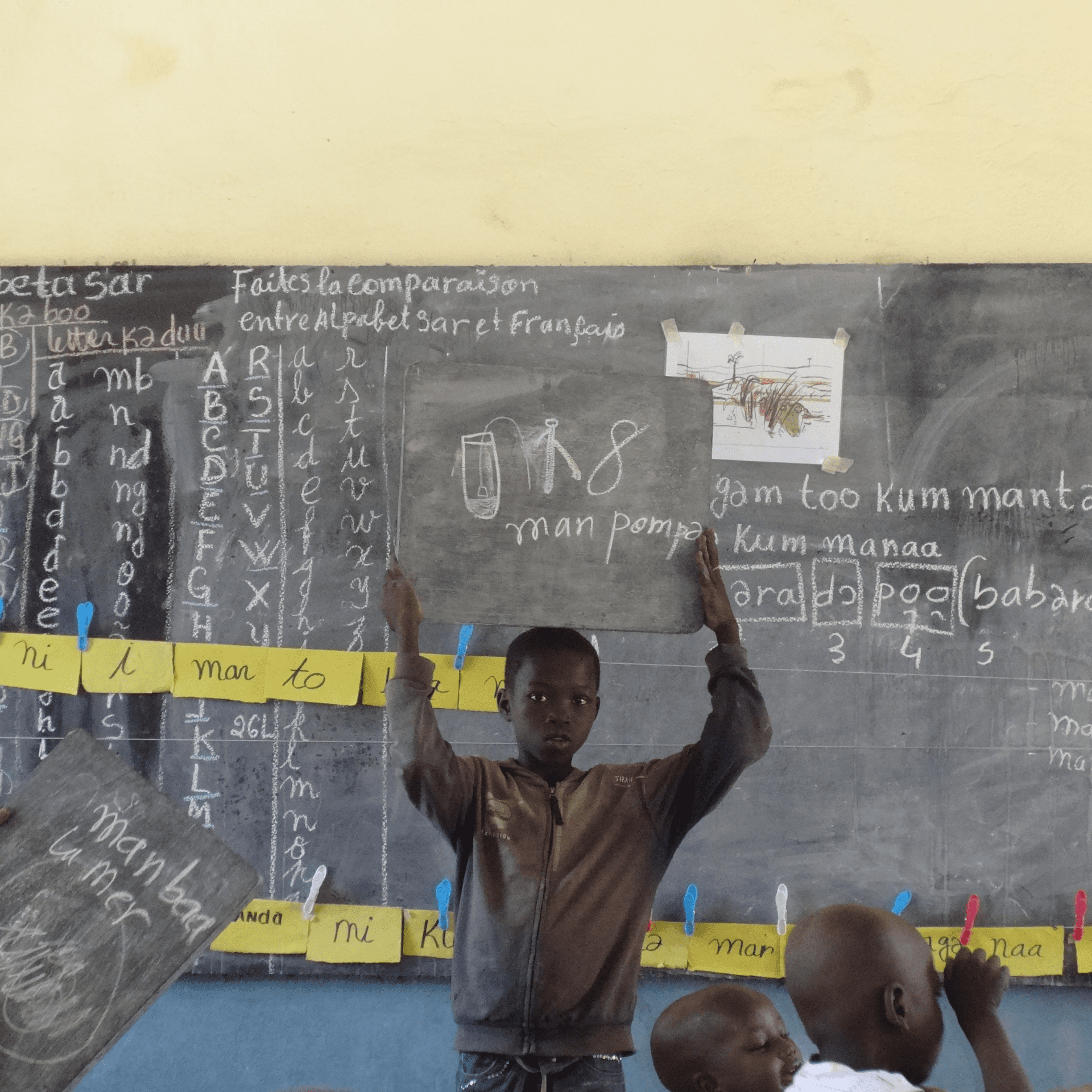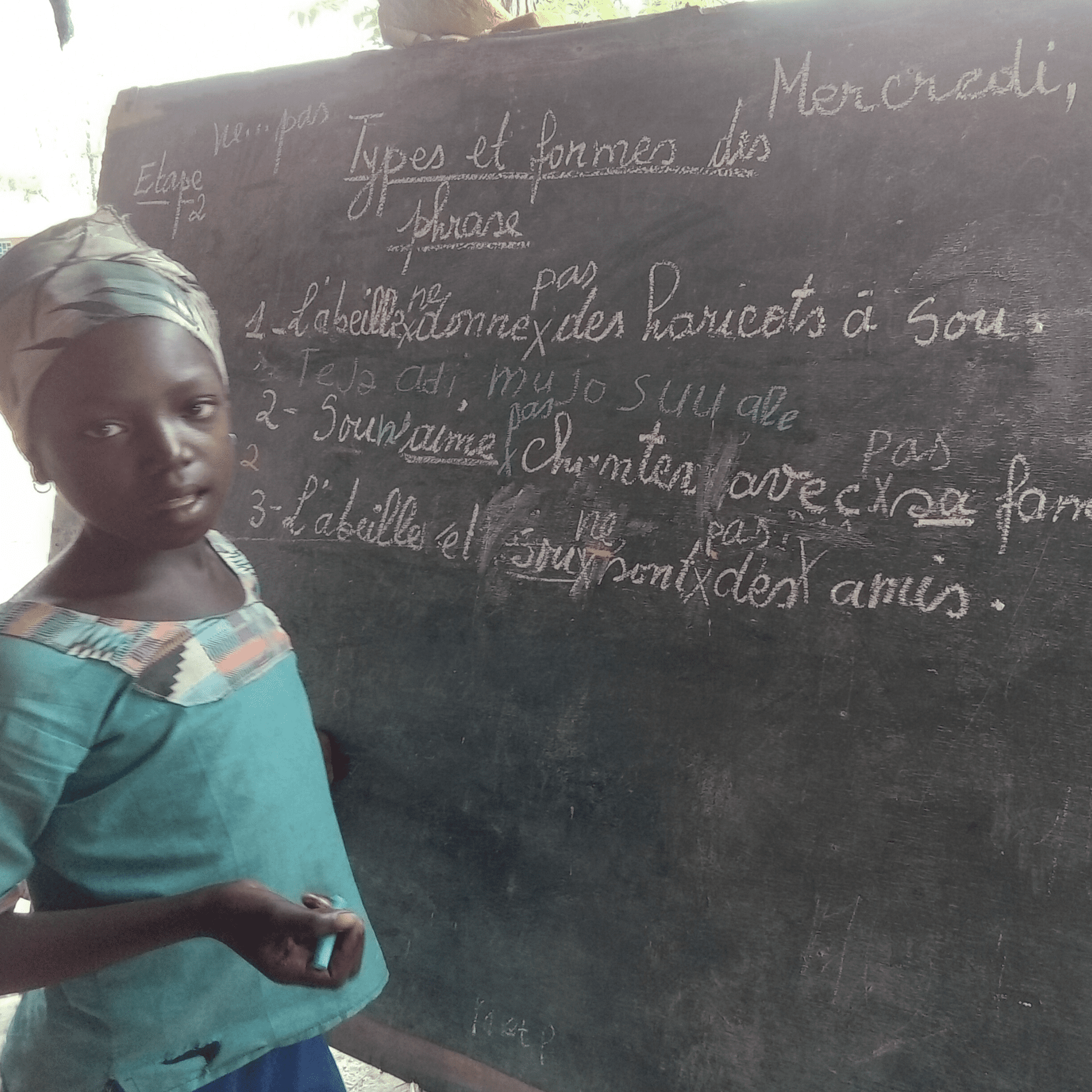
With over 50% of children not attending school in Chad, the educational stakes are crucial. Improving the quality of teaching by integrating local languages alongside the national language in the classroom is a key element of Enfants du Monde’s programmes. Here is an interview with our colleague Rufine Samma Yeko, educational director of the Enfants du Monde office in Chad.
Still too often illiterate after 6 years of primary school
Hello, can you introduce yourself?
I am Rufine Samma Yeko, Pedagogical Director of Enfants du Monde’s programme in Chad. I supervise the development of teaching materials and the training of teachers.
What are the challenges facing Chad’s education system?
I’d rather talk about the stakes. The first is that 55% of children in the southern provinces and 70% of children in the north do not attend school. Added to this is the poor quality of teaching; it is still too often the case that a pupil completes 6 years of primary school without having a basic knowledge of reading and calculation.
Improving education starts with teacher training
How is Enfants du Monde improving the quality of education in Chad?
To keep children in school, we have opted for quality improvement, both in the training of teachers and in the development of textbooks whose content reflects the experiences of pupils and their communities.
What are the results of Enfants du Monde’s efforts to improve education?
Children in schools supported by Enfants du Monde are showing rapid and solid progress. In three months, they can write their names as well as short sentences in Sar and French and give advice to their parents on drinking water or preventing malaria. These are concrete things ; very visible progress.
We also need to teach in the children’s language
Why is it important for education to be provided in several languages?
All African countries are multilingual. Monolingualism came about because schools excluded local languages and imposed the language of the coloniser (French in Chad, for example), which is not spoken by everyone. And that’s what complicates things. Enfants du Monde’s training courses incorporate local languages. So during lessons, the teachers explain the lessons in French and in the local language. This enables the children to understand well, to be very active and to ask questions. They can’t wait to get home and talk to their parents. With this type of teaching, there’s a real link between the school and the family. Language is culture, it’s identity. It’s very important for schools to be able to take into account the language of their pupils.
What else does multilingualism bring to the classroom?
The integration of local languages promotes understanding and unity between children. In the space of a few months, pupils who may speak a dozen different local languages will come to understand and appreciate each other better. This easier communication is the key to national unity. We fight less when we know each other, when we understand each other.
We must continue
What are the next objectives and projects for Enfants du Monde in Chad?
We will continue with our current mandates from the Swiss Cooperation and the French Development Agency. We also plan to develop our own programmes in quality education and maternal and child health, while seeking funding to implement them.
Learn more


